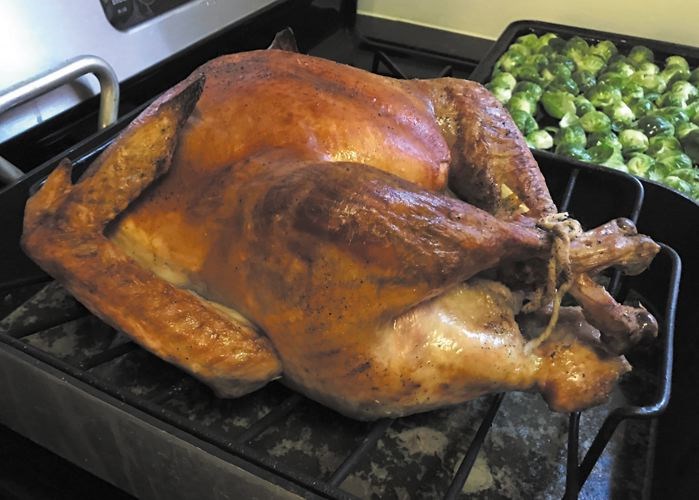A big part of celebrating the holidays is feasting with family and friends.
Most everyone looks forward to those traditional meals featuring the turkey, stuffing, mashed potatoes and a variety of vegetables in many forms, not to mention a great variety of desserts for the sweet-toothed set. The message Northern Health would like to send across the region is to safely handle the bird from thaw to storage. Also keep healthy eating in mind when choosing the menu for family and friends, and consider donating healthier choices to food banks for those in need.
"Salmonella and campylobacter are bacteria commonly found in poultry that can make you sick if the food is not prepared properly," said Daisy Tam, environmental health officer with Northern Health. "As many as one third of birds can test positive for salmonella and campylobacter."
If someone consumes undercooked turkey, there is a chance of becoming ill, added Tam.
Most vulnerable to be affected by the bacteria are children, seniors, pregnant women and those with pre-existing health issues.
It's important to use strong food safety practices when preparing a turkey focusing on temperature control and avoiding cross contamination, said Tam.
"When buying a fresh turkey make sure it's kept at four degrees Celcius or colder and cooked within two or three days of purchase," said Tam. "If thawing, make sure the turkey stays below 4 C or 40 degrees Fahrenheit during the whole process."
This means thawing in the refrigerator or putting the frozen bird under cold running water or into a clean insulated bag, suggested Tam. Thawing time is about one hour per pound so plan accordingly, she added.
"Frozen turkey is best thawed in its original plastic wrapper to prevent any potential cross contamination," said Tam. Wash hands often when handling the bird to reduce the risk of contaminating other food items.
Recent information says not to wash the bird because the splash zone is three feet or more, greatly increasing the contamination risk of other food or dishes.
When using a meat thermometer, be sure turkey and stuffing reach 167 degrees Fahrenheit or 75 degrees Celsius at their most dense points, which ensures they are safely cooked, added Tam.
To store leftovers, plastic storage containers are fine, just don't reheat the food in them. Remember to remove the turkey from the bone and don't put it in the fridge when it's too warm as it will heat up the inside of the fridge, possibly compromising other food items already in there. It's safe to leave the turkey out for up to four hours of grazing after dinner but no longer than that for food safety's sake. If not sure when leftovers will be used, freezing is recommended, added Tam.
Those health conscious holiday eaters must remember that this is one special meal on one special day and good health is about an overall healthy approach to eating.
"Many people worry about eating too much during the holiday meal," said Emilia Moulechkova, population health dietitian with Northern Health. "My suggestion is approaching the holidays as an opportunity to practice trusting your body's own internal cues of hunger and fullness and let these cues guide you when it comes to what and how much to eat. Eat mindfully and give yourself permission to eat the food that you enjoy in the amount that is satisfying to you."
Remember to focus on healthy living rather than weight and achieving a good energy and fitness level should take precedence over what the scale says, added Moulechkova.
When donating to local food banks, Moulechkova suggests making healthy food choices for those in need, like canned meats, peanut butter, whole grain cereal, rice and pasta, canned vegetables, dried fruit and unflavoured oatmeal.



